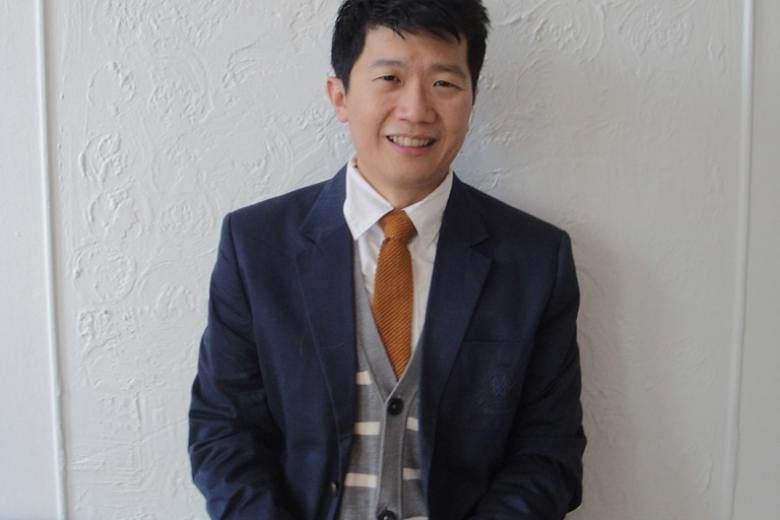After Jeremy Tiang sent out the first draft of his novel, the money stopped coming.
The Singaporean author had been awarded a National Arts Council (NAC) grant of $12,000, of which he had already received $8,600.
But after he sent the council the first draft of State Of Emergency, which traces leftist movements throughout Singapore's history, the remaining grant was withdrawn.
Tiang was startled, but decided to keep writing. "At the time, I had no income as I was writing full-time, so the additional money would have been useful," says the 40-year-old over Skype from New York, where he is based.
"But I would never have written this story just for a grant or a competition. I already knew I would write it anyway."
NAC director of sector development (literary arts) May Tan declines to comment on the reasons for withdrawing specific grants, citing confidentiality. "Funding is disbursed by stages, based on agreed deliverables at each point. Where funding conditions are not fulfilled at any stage, further disbursements may be discontinued," she says.
"Jeremy is one of Singapore's promising young fiction writers. NAC has supported various projects of his which are of strong literary merit."
The manuscript went on to earn Tiang, also a translator and playwright, a cash prize of $5,000 when it was shortlisted for last year's Epigram Books Fiction Prize.
Tiang had won NAC's Golden Point Award for English fiction in 2009. His short story collection It Never Rains On National Day, which was in the running for last year's Singapore Literature Prize, comprises 11 loosely connected stories about Singaporeans overseas and migrants in Singapore.
He is also known for his translation work, such as of Singaporean Yeng Pway Ngon's Chinese novel Unrest and Chan Ho-Kei's Hong Kong detective mystery The Borrowed. He is currently working on the translation of a Chinese young adult fantasy novel about teenage tomb raiders.
State Of Emergency, his first full-length novel, took him seven years to write. It follows the fortunes of a Singaporean family caught up repeatedly in political intrigue over the years, including the Hock Lee bus riots of 1955, Operation Spectrum in 1987 and the long-drawn guerilla war of the Malayan Emergency between 1948 and 1960.
Around 2010, Tiang began to contemplate a story that could connect all these events while walking past MacDonald House, the site of a bombing in 1965 that killed three and injured 33. Today, it houses a bank.
"I kept wondering what it must be like to have endured such a momentous event and to have the building still there," he says.
"When you look around Singapore now, it's very polished and unruffled - but as with MacDonald House, that hides a lot of turbulence below the surface. I wanted to dig for what there was below the historical narrative."
Tiang, who declines to give his marital status, researched his novel by reading books and watching films by and about former detainees.
He interviewed people from his parents' generation, including a Catholic priest who was in the church during the detentions without trial of church members in 1987, and visited the National Archives at Kew in London to view recently released papers from the final years of the British colonial era.
He also went to Semenyih New Village in Malaysia, where villagers from Batang Kali were resettled after Scots Guards allegedly massacred 24 of them in 1948, and Friendship Village 2 in Betong, Thailand, where some of the leftists lived when they fought in the jungles during the emergency.
"I wanted to anchor the story in specific details, like what people would eat for breakfast, to convey what it felt like to be in those places at those times," he says.
The book is told from the perspectives of six different characters, beginning with the marriage of an English-educated civil servant and a Chinese-educated activist, who disagree on the path Singapore should take.
"I don't think we could say either of them was right or wrong," he says. "We know historically that one point of view prevailed and Singapore became a certain way, and nobody can say it was for better or worse. But I wanted to show that at one point, it really was up for grabs."
• State Of Emergency is available at Epigram Books (shop.epigrambooks.sg) at $24.90.


